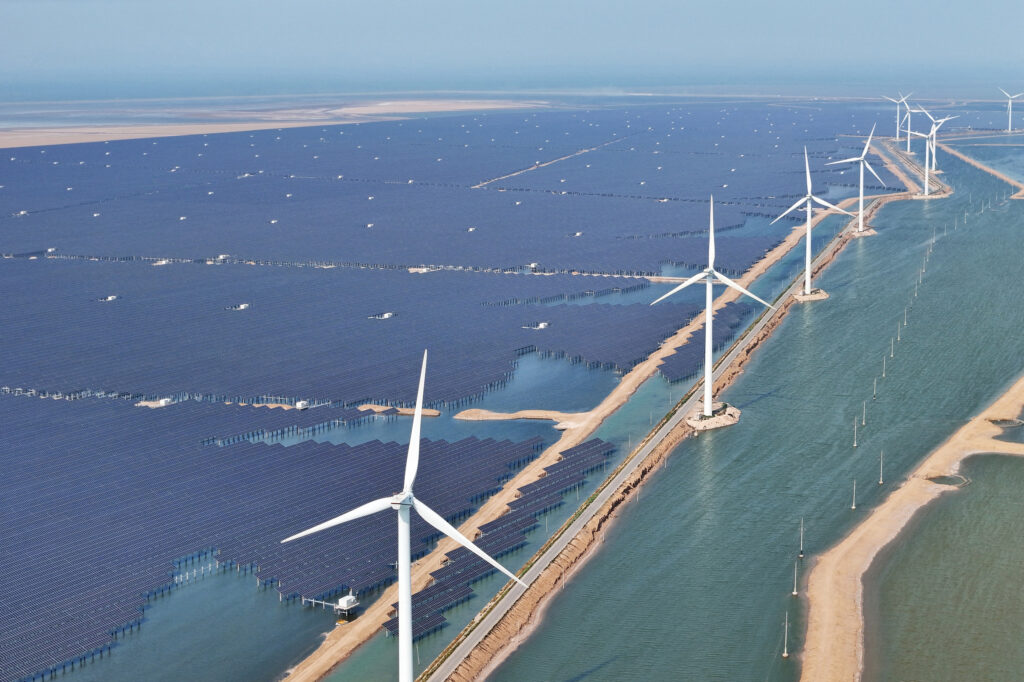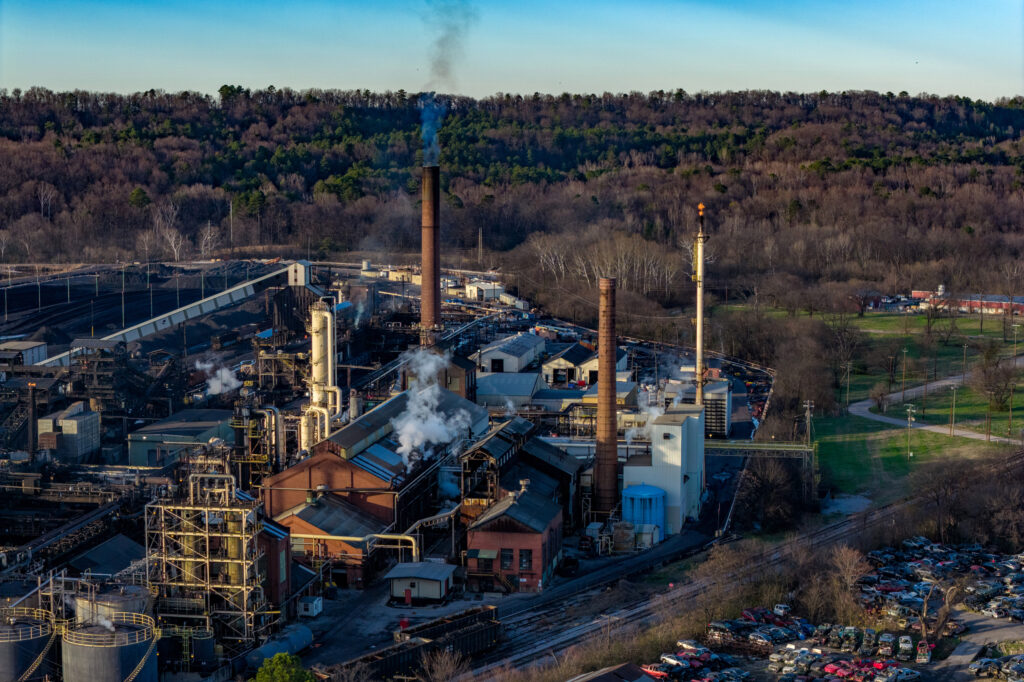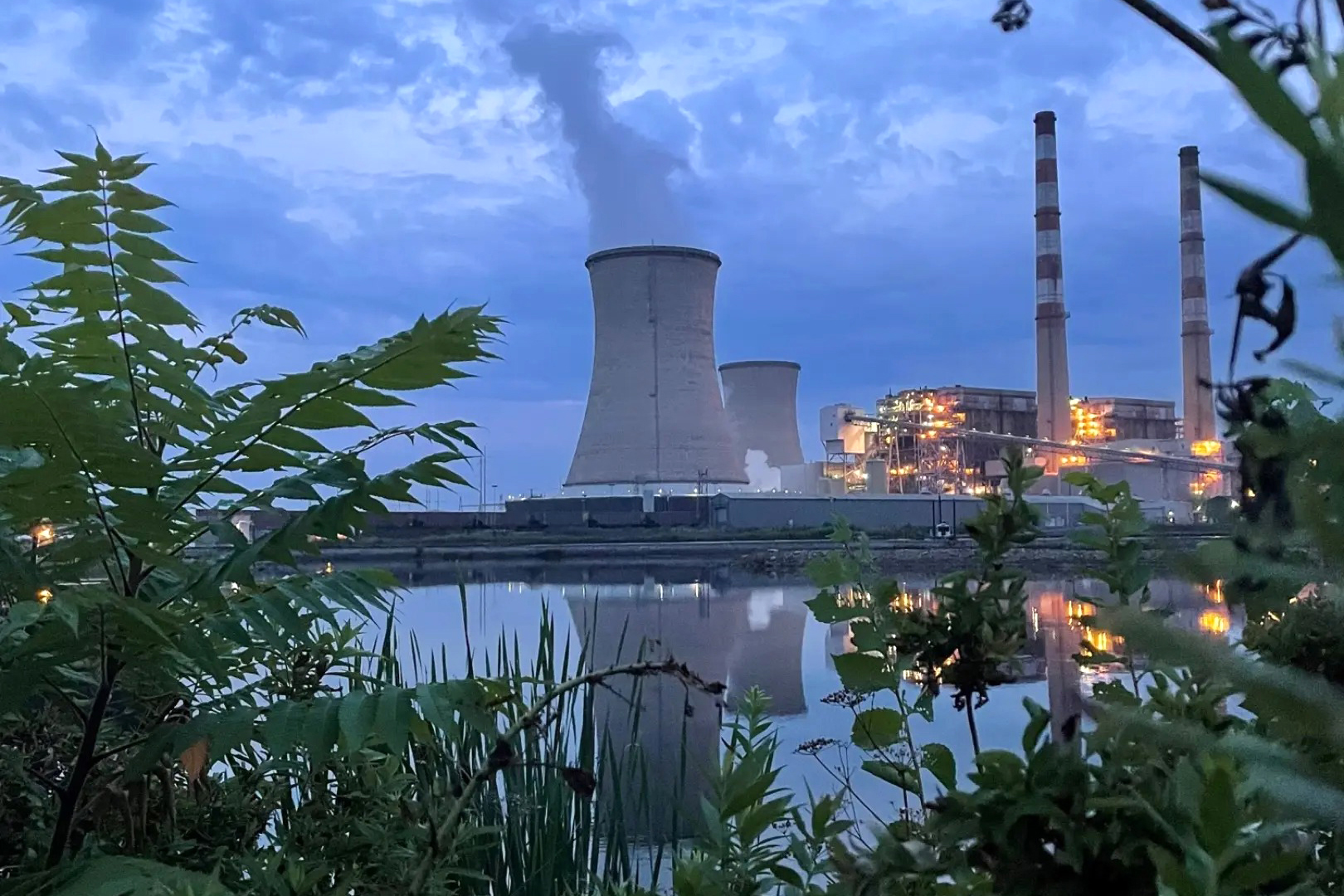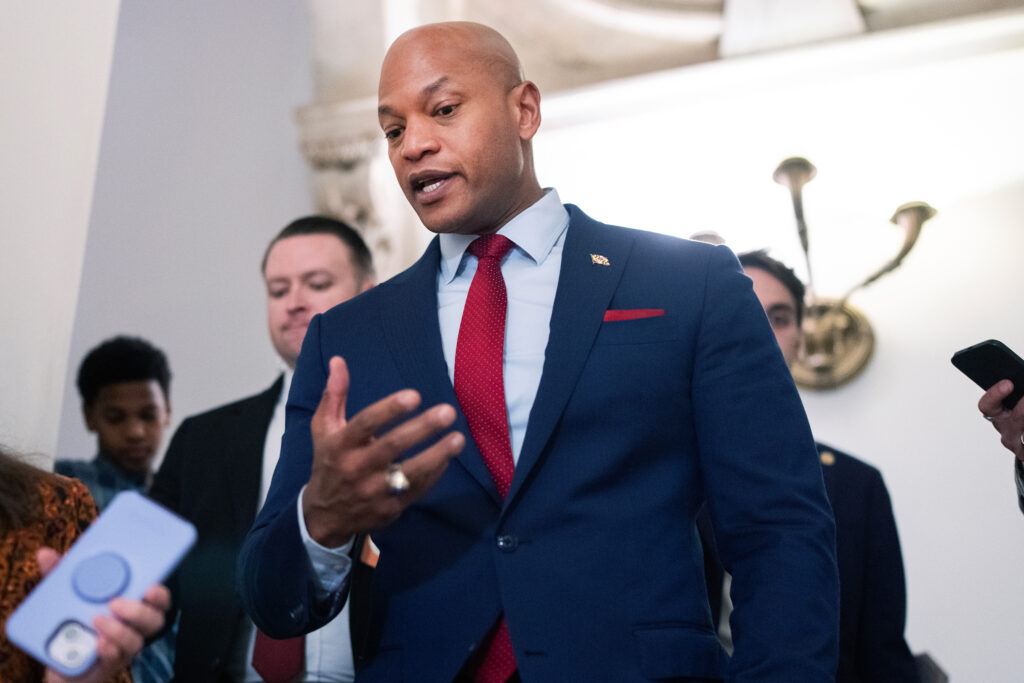California delegates to the United Nations’ 28th climate talks called the summit’s progress “lackluster” and, at a briefing last week, resolved to show the world how bold policies can pave the way toward a climate-safe future.
When the U.N. talks ended in December, world leaders called on countries to transition away from fossil fuels for the first time in the summit’s 28-year history yet offered few details on how to manage a “just, orderly and equitable” transition.
“You might be asking yourself, why did it take the United Nations and the COP process 30 years to have that in a document,” said Barry Vesser, who leads program and policy teams as chief operating officer of The Climate Center, a nonprofit think tank that led the briefing on how California should respond in the absence of global leadership.
A commitment to achieving net zero emissions by 2050 is a “great aspiration,” said Vesser, who also heads the center’s Climate-Safe Campaign, which works to make California the first state in the nation to become carbon negative by removing more greenhouse gases from the atmosphere than it releases.
We’re hiring!
Please take a look at the new openings in our newsroom.
See jobs
“But there are no commitments from countries about how we get there or what their approach will be to get to that lofty goal,” he said.
Climate change has already dealt devastating blows to California, with unprecedented floods, droughts and historic wildfires alone costing billions of dollars in property losses. With the state seeing catastrophic impacts of climate change, Vesser said, it needs to do more to model meaningful climate action.
His organization aspires to help California harness its power as the world’s fifth-largest economy to demonstrate to the world what a just transition looks like by collaborating with a broad coalition of scientists, businesses, academics, local and state governments, tribes, environmental justice groups and labor. The center led several events at COP28 to showcase California’s efforts and help give climate leaders in the state Legislature a global platform.
Vesser acknowledged advocates and scientists’ frustrations with COP, including the U.N.’s widely criticized choice of petro-states as host countries, with the United Arab Emirates for COP28 and Azerbaijan for the 2024 summit.
Vesser and other participants found themselves caught in a real-life absurdist drama in Dubai, trying to advance climate solutions while literally struggling to breathe in a country where fossil fuels’ dominance has left the air chronically polluted. Adding a surreal touch, the view from Vesser’s hotel window featured a billboard touting the benefits of electric vehicles on a freeway skirting the world’s largest natural gas power plant.
The COP28 agreement didn’t deliver everything many wanted to see, said California State Senator Monique Limón (D-Santa Barbara), who joined California’s delegation. But the senator, who has passed several laws to tighten oversight on California’s oil industry, remains optimistic. “Everything starts somewhere,” she said.
For all COP’s shortcomings, “we need the process,” Vesser said, echoing scientists like Michael Mann and Sandra Steingraber, who warn that abandoning the sole framework for global climate negotiations would only benefit the fossil fuel industry and petro-states.
“But it alone will never get us to where we need to go,” Vesser said. “A consensus process among 199 countries is not a functional approach for solving the toughest problem humanity has ever confronted.”
Confronting Hypocrisy
Weaning nations off fossil fuels remains a daunting challenge as the world’s oil and gas production continues to rise. Unfortunately, Vesser said, the United States leads the pack in “that ignominious race.”
That’s where members of California’s COP28 delegation hope to step in, partly by providing a vision of how to achieve an equitable transition.
Demand for fossil fuels in both California and the nation is dropping, but that’s only one piece of the puzzle, said Collin Rees, U.S. program manager for the nonprofit Oil Change International. “The U.S. is now the world’s largest producer of oil and gas and the largest exporter of gas, often through LNG,” he said, referring to liquified natural gas, the product of supercooling natural gas into a liquid.
For example, President Biden’s signature climate law, the Inflation Reduction Act, invested at least $390 billion to incentivize clean energy technology. But it doesn’t address fossil fuels, Rees said.
In fact, with no mandatory provisions for a fossil-fuel phaseout, the law has allowed an increase in oil and gas production and “soaring fossil fuel exports,” Rees reported in an analysis released in November.
The United States is on course to dwarf other countries with projected expansions of oil and gas production, Rees said. And it’s not alone in supporting a fossil-fuel phaseout while boosting production.

The consequences of that hypocrisy, he said, cannot be overstated. “Even if we stopped burning and extracting any coal tomorrow, oil and gas alone would take us past the 1.5 degree limit, if we don’t do something to keep some of those fossil fuels in the ground.”
Mounting climate impacts are already being felt across the United States and far beyond, he said. “Any amount of increased temperature rise has catastrophic impacts for humanity, for people’s homes, for people’s livelihoods and for people’s jobs. And for our natural environment, of course.”
It is essential for governments to reconcile their aspirations with what’s happening on the ground, Rees said.
Much of the oil and gas produced in the United States in particular is being shipped around the world, locking people into fossil fuel dependency, he explained.
Countries and states like California that are not wholly economically dependent on oil and gas revenue have the capacity to fund a fair and fast transition, Rees said. Yet they still have not helped workers and communities find jobs or new revenue streams in a green economy. That failure to act is signaling to poorer countries that they don’t have to either, Rees said.
The United States can still change course to become a leader in phasing out fossil fuels, not in exporting them to other countries, Rees said. “We have an opportunity to advocate, to legislate, to make different decisions.”
Protecting Hard-Won Progress
Sen. Limón, who has spent years fighting to protect her community from fossil fuel pollution, takes the long view.
She knows all too well the environmental and health costs of oil development.
Sunday was the 55th anniversary of the massive spill that dumped some 4 million gallons of crude oil into the ocean off Santa Barbara, where she was born. The spill left a 40-mile-long oil slick that killed fish, sea mammals and thousands of birds.
Santa Barbara County had long thrived off the production of fossil fuels. But the 1969 blowout, which inspired Earth Day and several state and federal environmental laws, changed how people viewed the industry, she said. “People started to see with their own eyes the impacts that fossil fuels have had on our communities.”
And while the latest COP ended with an agreement to begin talking about the end of fossil fuels, she said, California has already started the conversation about how that transition should happen.
This story is funded by readers like you.
Our nonprofit newsroom provides award-winning climate coverage free of charge and advertising. We rely on donations from readers like you to keep going. Please donate now to support our work.
Donate Now
That conversation must make sure communities whose livelihoods depend on the fossil fuel industry and who’ve long faced disproportionate health risks from living near oil and gas extraction are not left behind, Limón said.
“But it has been very difficult in California,” she said.
Both Limón and State Sen. Henry Stern (D-Los Angeles), who co-authored groundbreaking climate accountability and disclosure laws, believe the first priority must be to protect laws already on the books.
“Senate Bill 1137 is a perfect example,” Limón said, referring to a landmark law she co-authored to create buffer zones between communities and oil and gas operations. “That is on the ballot, and we are going to have to protect it.”
California, like 23 other states, allows voters to decide via referendum whether to keep or overturn new laws. It’s a process regulated industries have long taken advantage of to block regulations.
S.B. 1137 had barely entered California state code when the oil industry, a powerful influence even in a state viewed as a global climate leader, spent more than $18 million to get a referendum overturning the new law on the 2024 ballot. The referendum qualified, with the help of signature gatherers who lied to voters, and froze implementation of the law. Yet even without the protections of S.B. 1137, California regulators could have simply denied permits based on the clear health risks associated with oil and gas operations, legal experts said, but instead allowed operators to expand drilling within the setback zones.
“California can really step up as the political leader in this moment, by ending new permits for oil and gas,” said Rees. That would allow California to join the Beyond Oil and Gas Alliance, he said, referring to a global diplomatic coalition of jurisdictions that are leading this transition away from oil and gas.
It took decades, and many legislators, to get the setback law passed, Limón said.
Yet it’s just one of the historic climate laws under threat in California.
The state faces a $38 billion deficit, and Gov. Gavin Newsom’s budget proposal, released earlier this month, froze funding until spring for all recently signed laws, Stern said. That includes his climate accountability package, the most extensive climate emissions and financial risk disclosure laws passed in the nation. It’s also the first to require disclosure of “scope 3” supply-chain emissions, which include emissions generated from the use and disposal of the products companies sell. S.B. 253 requires corporations grossing more than $1 billion a year that do business in California to disclose all greenhouse emissions while S.B. 261 requires companies grossing more than $500 million with business in the state to disclose climate-related financial risks.
The California Chamber of Commerce asked Gov. Newsom to veto both bills, saying in position statements that they will duplicate federal reporting requirements and will hurt small businesses.
The laws passed despite stiff opposition from business interests, which are threatening lawsuits and boycotts of financial institutions that invest expressly in the transition away from fossil fuels, said Stern, who chairs California’s Joint Legislative Committee on Climate Change Policies. But more troubling, Stern said, is the fact that Newsom’s proposed budget froze funding for recently signed laws, including the climate accountability package.
“Part of what we’re doing right now is trying to make it very clear to the administration how important this is for the climate community,” Stern said.
Many working to solidify California’s role as a climate leader see an obvious way to restore funding for bold climate measures despite the budget shortfall: eliminate any subsidies and tax breaks that benefit the oil and gas industry.
California has set 2045 as the deadline for phasing out fossil fuels, but it needs to be significantly faster, Rees said. “We need an immediate end to new fossil fuel expansion. This is not turning off the taps or the extraction tomorrow. But it is saying we can’t afford to add more fuel to the fire.”

















